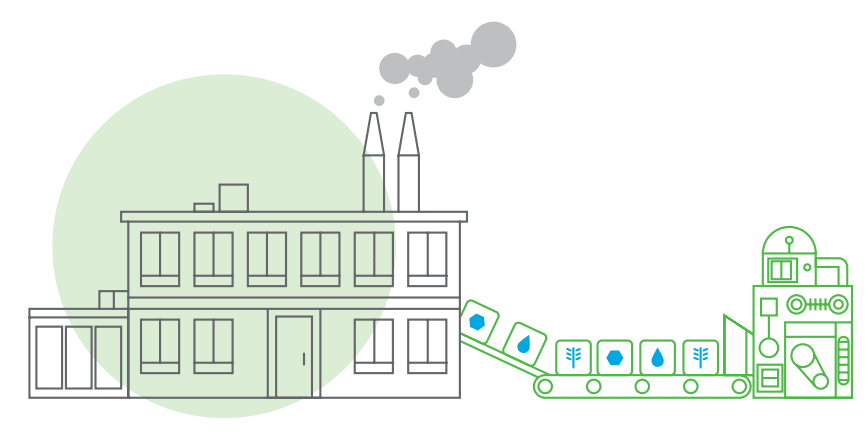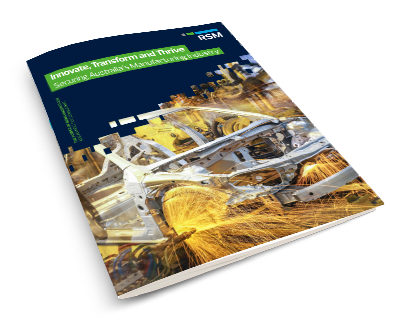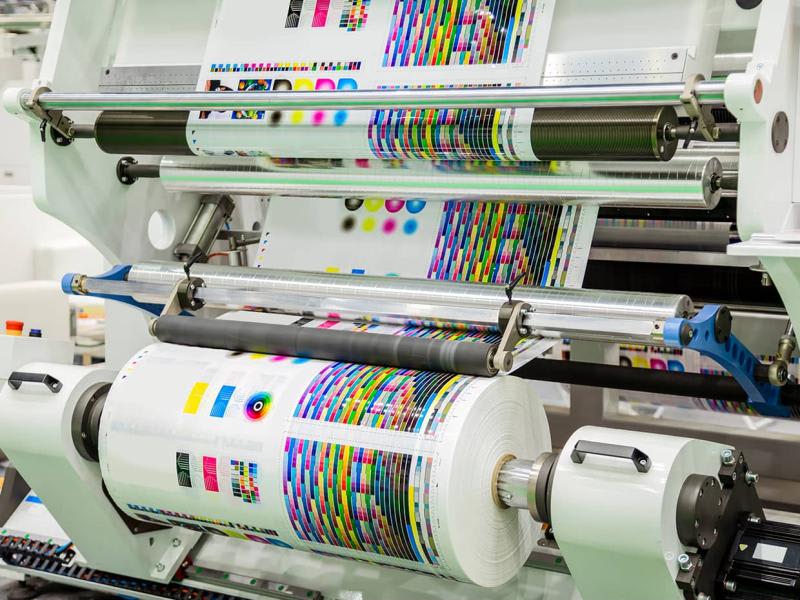Securing Australia's Manufacturing Industry
Take an insider’s look behind-the-scenes of Australia's dynamic manufacturing landscape.
The manufacturing sector in Australia is evolving, with a shift in focus from traditional industries like metal products and textiles to high-value areas such as health, defence and energy, particularly post-Covid-19.
With insights from industry trailblazers and seasoned manufacturing business specialists, this report will take you on a journey through the trends, challenges and innovations shaping the future of Australian manufacturing.
KEY INSIGHTS
- Technology, from automation and AI to 3D printing and IoT, is reshaping Australian manufacturing, optimising operations, reducing manual labour and fostering Industry 4.0 integration across the production process.
- Skills shortages pose a challenge to Australian manufacturing, with 90% of businesses expecting shortages in 2023, prompting a focus on upskilling existing workers.
- Sustainability is emerging as a strategic imperative, with a broader industry focus on sustainable sourcing.
Manufacturing has been a core contributor to Australia's economic development for over a century, shaping our nation's identity and contributing significantly to growth.
As a sector that spans a wide range of industries, manufacturing has been pivotal for employment, innovation, and technology.
In the early 1960s economic and social boom of Australia, the sector accounted for more than 30% of the economy and employment. The processes and advancements devised by Australian manufacturers have added value to existing products and stimulated other industries.
“We have a reputation globally for being able to deliver high-quality, low-volume product around the world. We should focus on that.”- CSIRO Director Manufacturing Dr. Marcus Zipper.
However, like many developed nations, Australia's manufacturing sector has faced its share of challenges in recent years, with globalisation, automation, and shifting market dynamics disrupting the industry significantly.
Australian manufacturing these days has a greater focus on high-value products in health, energy, and food, among others, and its share of gross domestic product has fallen to about 10%.

Dr. Marcus Zipper
“We have a reputation globally for being able to deliver high-quality, low-volume product around the world. We should focus on that.”
Post-Covid challenges plaguing the Australian manufacturing sector
Australia’s diverse manufacturing sector is weathering the storm of international factors, a changed domestic economy, and skills shortages.
In the post-Covid world, there remain significant challenges for Australia. The cost of labour and equipment is up, while incentives such as the tax write-off of the temporary full expensing measure has ended. Costs are rising.
However, there is hope that more skilled migrants - such as much-needed mechanics, engineers, welders and boiler makers - may be enticed to come to Australia following the significant increase of the Temporary Skills Migration Income threshold to $70,000.
The sector is resilient but also open to change. Manufacturing in food and beverage, machinery and equipment, defence and resources, metals and increasingly advanced manufacturing are transforming the industry.
“Manufacturing is the most innovation-intensive sector in the whole economy. No country can be an innovation leader without a strong manufacturing base.” - The Centre for Future Work
Likewise, the imminent $15bn National Reconstruction Fund will be a shot in the arm for the industry, especially in its target sectors of critical technologies, renewables, advanced manufacturing, and value-adding in resources.
This report dives deep into Australian manufacturing strengths and weaknesses, with insights from industry leaders offering a strategic approach for the future.

The Australian government has significantly increased its financial support for homegrown manufacturing, focusing on advanced manufacturing through initiatives like the National Reconstruction Fund and the Industry Growth Program.
These programs aim to address financial gaps, encourage innovation, and bridge early-stage business development challenges. Increased spending on research and development, exemplified by the R&D Tax Incentive, reflects a commitment to fostering innovation. State-level policies like Queensland's MiQ further support manufacturers adopting new technologies.
However, there are concerns about the commercialisation lag in Australia, prompting calls for a more expansive ‘patent box’ regime. Industry leaders emphasise the need for incentives that keep the entire value chain within Australia.
Unlock the report to learn more.
Download full report >

Omega Manufacturing Group

Omega Manufacturing Group, based in Wodonga, has transformed its CNC manufacturing facility through automation and vertical integration, allowing for end-to-end production of precision parts. They see automation as a means to enhance operational efficiency without reducing the workforce.
Omega Manufacturing Group is strategically expanding into the US, supported by collaborations with RSM, leveraging incentives and grants for research, development and technology adoption. The company's data-driven validation approach positions it to compete globally, emphasising its ability to thrive on a larger scale.
The rapid mainstreaming of advanced technology
Technology plays a pivotal role in reshaping manufacturing in Australia. Automation, artificial intelligence, additive manufacturing (3D printing), and the Internet of Things (IoT) are some of the biggest technologies driving advancements.
Automation is changing traditional practices, reducing manual labour, and enhancing efficiency, while 3D printing is revolutionising manufacturing by offering precision, reduced waste and faster prototyping.
Despite the potential benefits, there is concern that Australian manufacturers are not sufficiently investing in these advanced processes. The Advanced Manufacturing Growth Centre recommends that manufacturers concentrate on improving specific metrics to drive growth and competitiveness in the global market.
ifm

ifm, a global manufacturer specialising in industrial automation and sensor solutions, has transformed its business model. The company, originally a manufacturer, now focuses on creating products to solve process problems.
IFM worked with a port operator at the Port of Melbourne, using sensors on cranes to monitor and detect hazards, enhancing safety and productivity. The company's emphasis on smart solutions provides data-based insights to small and medium end users, supporting innovation and efficiency.
Four recommendations to improve outcomes for the Australian manufacturing sector
Increase the quantum of funding and number of government contracts for advanced manufacturing to allow Australia to compete on a global level. The $15bn National Reconstruction Fund will be significant, but it pales in comparison to US and EU allocations. With grant allocations, provide substantially larger amounts to a smaller number of companies to make a meaningful impact.
Appropriately target the National Reconstruction Fund to critical industries where Australia has a competitive advantage. Maintain transparency about funding and sector priorities to overcome the current lack of visibility over where this funding will be allocated.
Continue international agreements to embed Australian manufacturing in global supply chains. Consider Australia-first supply chain requirements for major projects and mandates for majority-owned Australian companies to support local business. This is already in place with some of our trading partners, including the US and EU, which support their local manufacturers first, creating an uneven playing field.
Reinstate the instant asset tax write-off to provide a greater incentive and ability to purchase capital equipment and machinery. The modernisation of production processes and equipment can also support decarbonisation, productivity and advanced manufacturing processes.
At RSM, we work with leading manufacturers across regional and metro Australia every day and deeply understand the complexities of the sector.
We believe targeted government investment and incentives to reinstate asset write-offs, raise investment in specific advanced manufacturing niches, overall tax reform, and research and development are needed for our nation to keep up and thrive in the developing net zero global economy.
Like our global competitors, we also need to develop and implement green energy technologies at scale to capitalise on our natural resources and existing skills in mining and related services.
Australian manufacturing is on the cusp of a new era. Proactive business leaders who seek opportunities to embrace change will find themselves well-placed in Industry 4.0.
The coming decade will herald a great transition for manufacturing and other industries. With industry and government working together, we have the smarts and the ability to lead the way.
Report contributors
For further enquiries, please contact our team
Contact us
Have a question? Please get in touch.
Contact us
Have a question? Please get in touch.











